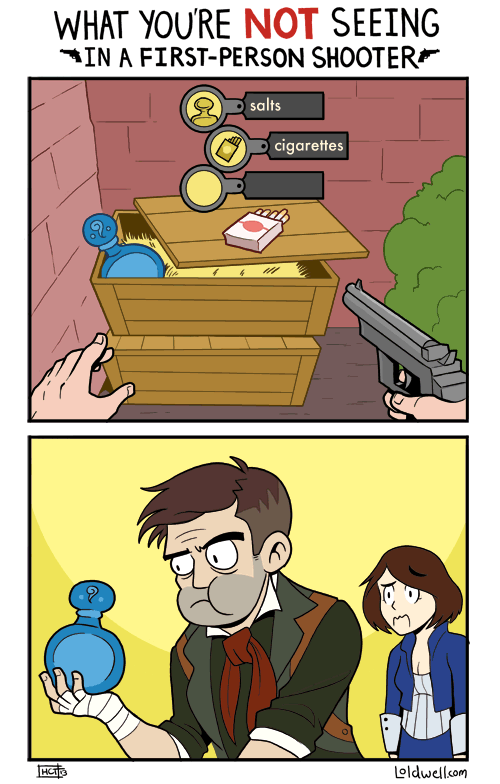That's pretty much the big theme of the game. Larger than life religious leaders/cult leaders and so-called prophets often use their religion to not feel guilty about all that they've done. Those things become foundations for their further ideology, and they can continue to commit those same "sins" again and again.
While they use religion to excuse their sins, they don't tend to actually start off as sinners. Instead, the power that comes from becoming leaders ultimately corrupts them into committing new sins. And it's not just religious leaders that this happens to. So this is less a commentary on religion and more a commentary on how absolute power corrupts absolutely.
I am not a fan of religion. I will use ANY excuse I can to complain about it or to poke holes in it. But the feeling of security that it gives people is not its greatest sin by a long shot. Any criticism of religion must start with the idea of faith and following, not the concept of false forgiveness. Because often times, the thing that stands between sinners and their salvation is the ability to forgive themselves and move past their sins rather than be consumed by them.
I think you're thinking of Comstock and Booker on a grander scale than what it's meant to be, too. This is the tale of one man who did some terrible things, and doesn't know how he will ever forgive himself or be forgiven for them. Then the possibility of a quick forgiveness comes. The quick way out presents itself to him. Either he accepts or rejects. The game is making the point that an easy way out like that doesn't work. You can't be forgiven for doing bad things if you never actually repent. You can't be forgiven if you just create a worldview around it which those things are foundations. The technology and all that are sidestories to the real tale of Booker.
The real tale of Booker happens at Wounded Knee and we never see it.
Also, the game makes a point that the easy way out doesn't work - and then proceeds to dwell on the fact that the alternative is to lock yourself in a room, disfiguring yourself for twenty years because you sold your only child to cover your gambling debts. There's a lesson in here somewhere.
I can buy that the drowning at the baptism is meant to provide the salvation that neither Booker nor Comstock ever had in life. That his ultimate sacrifice saved the lives of millions of people in a million million universes. It heals the wound that has festered across time and space.
(side note: the Booker that the player plays is haunted more by giving up Anna than anything he did at Wounded Knee, so his salvation would not be defeating Comstock across time and space, but by sacrificing himself for Anna - which he doesn't do because it was Anna's idea and she enacted the plan, which Booker did not realize until after he was sucking down water for air).
Anyway, the salvation gained by "killing Comstock" still doesn't work because after the credits, you see that Booker is alive and ambiguously, so is Anna (starting to think Ken Levine shouldn't have watched Inception). Did this Booker have his salvation if he can not remember the sacrifice he gave? Is he still in debt? Is he still haunted by the choices he made at Wounded Knee (and after)? It's ambiguous, but ultimately the logical answer is that this Booker never found his salvation because this Booker never made the ultimate sacrifice.
Booker and Elizabeth are inside a structure that can withstand the pressure?
Songbird wasn't build for deep-sea exploration.
I think he's talking about the moment when Booker and Songbird fall into the ocean before Battleship Bay. And yeah, for the pressure to be strong enough to crack thick, curved glass, it would likely be quite lethal to a person (assuming the thousand foot fall didn't kill him first).



